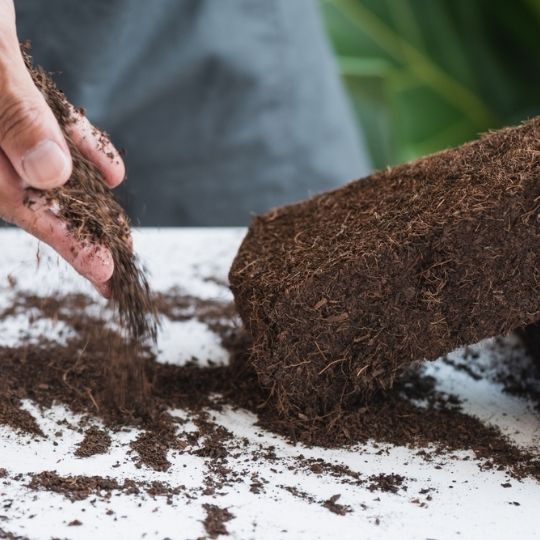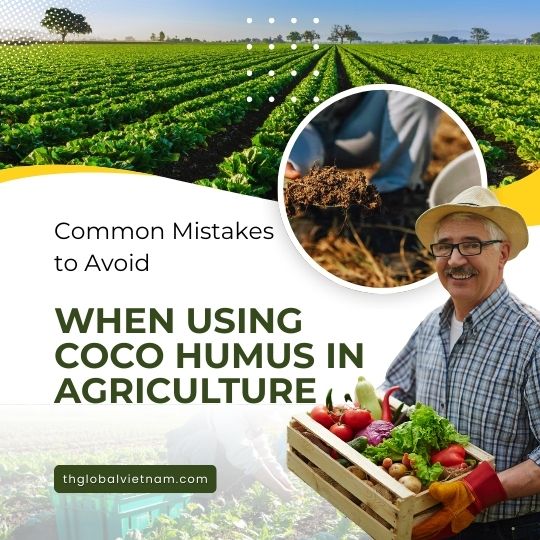Coco Humus, made from composted coconut husks, is a powerful organic soil amendment that improves soil structure, retains moisture, and boosts microbial life. However, while its benefits are well-known, incorrect application can reduce its effectiveness or even harm crops. To maximize results, farmers and distributors need to understand the common mistakes in Coco Humus use—and how to avoid them. This article highlights practical tips to ensure Coco Fiber Compost supports healthy soils and sustainable farming practices.
Mistake 1: Using Coco Humus as the Only Growing Medium
Some growers mistakenly assume Coco Coir Compost can fully replace soil. While it’s excellent at holding water and nutrients, it works best as an amendment mixed with soil or compost. Using it alone can cause nutrient imbalances and insufficient structure for certain crops.
Learn more about how to apply Coco Humus for maximum yield.

Mistake 2: Ignoring pH and EC Levels
Although Coco Fiber Compost is usually pH neutral, improper composting or poor-quality supply can alter its properties. Farmers often skip testing for pH or electrical conductivity (EC), leading to inconsistent results. Regular testing ensures optimal Coco Humus application.
According to FAO soil management guidelines, monitoring pH and EC is essential for sustainable soil fertility.
Mistake 3: Overwatering Crops
Because Coco Coir Compost retains water so effectively, farmers sometimes continue watering at the same frequency as before. This can cause waterlogging and root stress. The solution? Reduce irrigation when Coco Peat Compost is added to soil mixes.
Mistake 4: Not Mixing Properly with Soil
Another common error is spreading Coco Peat Compost on the surface instead of mixing it into the root zone. To optimize aeration and microbial activity, farmers should blend it evenly into the top 15–20 cm of soil.
For crop-specific guidelines, see our blog: Top Crops That Thrive with Coco Humus.
Mistake 5: Skipping Quality Assurance
Not all Coco Humus products are created equal. Some low-quality sources may contain high salt levels or incomplete composting. Always purchase from trusted suppliers who meet international standards for moisture, pH, and organic content.
で THグローバルベトナム, we ensure strict quality control, export certifications, and tailored packaging to meet importer and farmer needs.

Coco Coir Compost is a sustainable, versatile soil amendment—but only if applied correctly. By avoiding these mistakes—using it alone, ignoring pH, overwatering, poor mixing, and sourcing low-quality products—farmers can fully benefit from Coco Humus use.
For importers and distributors, ensuring proper education and supply quality makes Coco Peat Compost a profitable and eco-friendly product for modern agriculture.
Ready to source premium Coco Coir Compost? Contact TH Global Vietnam for bulk supply and custom packaging.

